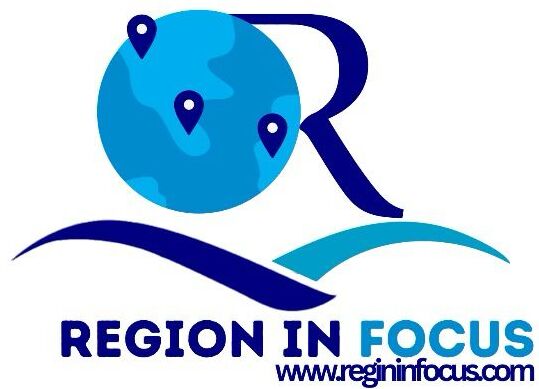With the escalating climate crisis, policy makers and scientists around the world are coming to the realization that the current science and technology is not the full solution. There is an increasing recognition of a rich but neglected source of environmental wisdom, which is the traditional ecological knowledge of Indigenous people. Based on the centuries of interaction with the natural world, Indigenous knowledge systems provide the insights on the sustainability, adaptation, and balance, which is quite applicable to the current problem of a climate. This recognition, however, can be debated as well: is Indigenous knowledge actually having an impact on climate policy, or is it being applied in a superficial way to indicate inclusivity, but not transformative change?
Nature and Origin of Indigenous Knowledge.
Traditional ecological knowledge, commonly abbreviated as indigenous knowledge, is a body of wisdom, practices and beliefs, which are built over time as human communities relate with their ecosystems. It is transmitted across generations and it is experience and observation that shape it as opposed to theory. Indigenous knowledge is holistic and relational in contrast to the Western scientific structures that focus on measurable information and the norms of data collection. It connects the surrounding world to spirituality, culture and community life as it is perceived that humans are not separate to nature but rather they are part of the living system.
In the context of policy discussion, long before the term “sustainability” was introduced, Indigenous communities across the globe have exercised a sustainable practice. There are examples of deep environmental knowledge of the rotational farming of the Andes, the forest care of the Amazonian peoples and the water management of African and Pacific Island societies. Such practices ensure the fertility of the soil, biodiversity, and balance between consumption and renewal, which are the aspects that modern societies can hardly restore at present. In fact, it has been suggested by global studies that Indigenous people are in control of nearly 80 percent of the remaining biodiversity of the planet, which can be a very important factor in environmental conservation.
In Global Climate Governance, recognition is an essential component that must be involved in the process. In Global Climate Governance, recognition is a necessary element that should be part of the process.
Indigenous knowledge is now being recognized by the international community as a critical element in proper climate policy. The Paris Agreement of 2015 directly mentions the value of traditional knowledge in the adaptation and mitigation process. Similarly, the United Nations Framework Convention on Climate Change (UNFCCC) created the Local Communities and Indigenous Peoples Platform (LCIPP) to facilitate consultation and experience exchange between the Indigenous communities and the state actors.
During COP26 in Glasgow, Indigenous representatives made a high profile appearance, pushing on climate justice, acknowledgment of land entitlement, and defense of customary lives. Their involvement stressed the fact that Indigenous management of nature is not just an ethically right direction but an effective means of attaining the sustainability goal. Other countries, including New Zealand and Canada, have begun to integrate the Indigenous values into national climate policies, which provides the first glimpses of how the traditional wisdom and contemporary governance can be merged. Although these developments are positive, there is still a disparity in the practical scope of their application which is usually hampered by structural and political considerations.
Indigenous Knowledge and Climate Change.
The indigenous knowledge provides numerous practical approaches to both adjusting to and alleviating climate change. It is naturally dynamic, and it is created through the generations of examination and experimentation based on the local environmental factors. Indigenous farmers in Southeast Asia engage in a farming method known as agroforestry, which involves the combination of trees and agricultural crops, to maintain the fertility of the soil and availability of water. Inuit fishers and hunters in the arctic use advanced knowledge of sea ice dynamics that more often than not outweigh satellite forecasts. In East Africa, Maasai pastoralists rotate pasture lands by following seasonal cycles, so that they are not overused, and ecological regeneration takes place.
These examples indicate how Indigenous approaches are moving systems of innovation and not fixed traditions. Instead, they reflect the attributes of strength, adaptability and environmental consciousness – the ones that have begun to be considered a necessity to confront the unknown impact of the climate change. With such views adopted, global climate policy can be transitioned to focus less on global solutions and more on the local solutions based on cultural understanding.
Hurdles and potential Perpetrator Risk.
Although it is evident that progress has been made in terms of recognizing the role of Indigenous people, their role in the global climate policy can be rather superficial. The leaders of indigenous peoples are often invited to international conferences, but their views are not always taken into consideration in the final results of the policy negotiations. This symbolic inclusion is also known as incidenceal inclusion or inclusion without influence and runs a risk of diminishing the participation of Indigenous people to a tokenistic level of involvement, instead of partnership.
What makes this issue more difficult is that Western science cannot inherently fit into Indigenous epistemologies due to the difference in their worldview. Although international policy is inclined to use standardized information and universal sets, the Indigenous knowledge is local, dynamic, and usually orally transmitted. The transfer of Indigenous wisdom to the policy documents without altering its meaning is a complicated task. Moreover, the matters of intellectual property and consent have ethical constraints of their own. Most of the Indigenous communities fear that their knowledge might become exploited or commercialized without the necessary recognition and payment. In order to promote fairness, the principles of respect, trust, and the right of Indigenous people to determine the use of their knowledge should govern the work of collaboration.
Sovereignty and Climate Change.
No discussion of the role of Indigenous knowledge in international climate policy can be made without the general struggle of Indigenous rights and climate justice. The communities with such knowledge are in many cases the most prone to the changes in climate – being displaced, deprived of means of living, deprived of cultural identity. Ironically, they are the least contributors to the greenhouse gases. Climate justice is thus demanding inclusion as well as empowerment in response to historical injustices and recovery of autonomy.
The best part of this empowerment is secure land rights. It is always proven that the rates of deforestation are lower in the areas that are managed by Indigenous people. However, most of the Indigenous territories are either unacknowledged or even endangered by the extraction of resources, logging, and the creation of other infrastructures. A bright example is the Amazon basin, where international awareness of the significance of the environment is not enough to stop encroachment and violence in the Indigenous territories. The reason why these lands need protection is not just conservation as such, but a defense of cultural existence and a necessity to effectively take action to fight climate change.
Coming up with a real Cooperation.
In order to make the Indigenous knowledge really impact global climate governance, the relationship between Indigenous people and policy-makers needs to shift to the co-creation format. This involves a prolonged process of dialogue and reciprocal education where the leadership of the Indigenous representatives has the real power of decision making. The governments and global organizations need to change the institutional structures in order to provide fair engagement and support of Indigenous sovereignty.
Recommendation: To a Survivable Climate Future.
The acknowledgment of Indigenous knowledge in the global climate policy is an important and long-overdue change of the environmental mindset. It questions the supremacy of technocratic answers and recommends that climate change is a cultural/ethical problem as much as a scientific one. However, to make this recognition substantial, it has to come with veritable respect, equal partnerships, and re-establishment of authority.
Indigenous knowledge does not only hold local insights but also a vision of the world that would re-establish the relationship of man and nature. Adopting this attitude does not reduce scientific knowledge – on the contrary, it extends it, and the world policy should be based on empathy, humility and respect of diversity. With the world yet to come to terms with the growing impacts of climate change, Indigenous people might become not only a matter of justice, but also a door to the survival of the planet.


